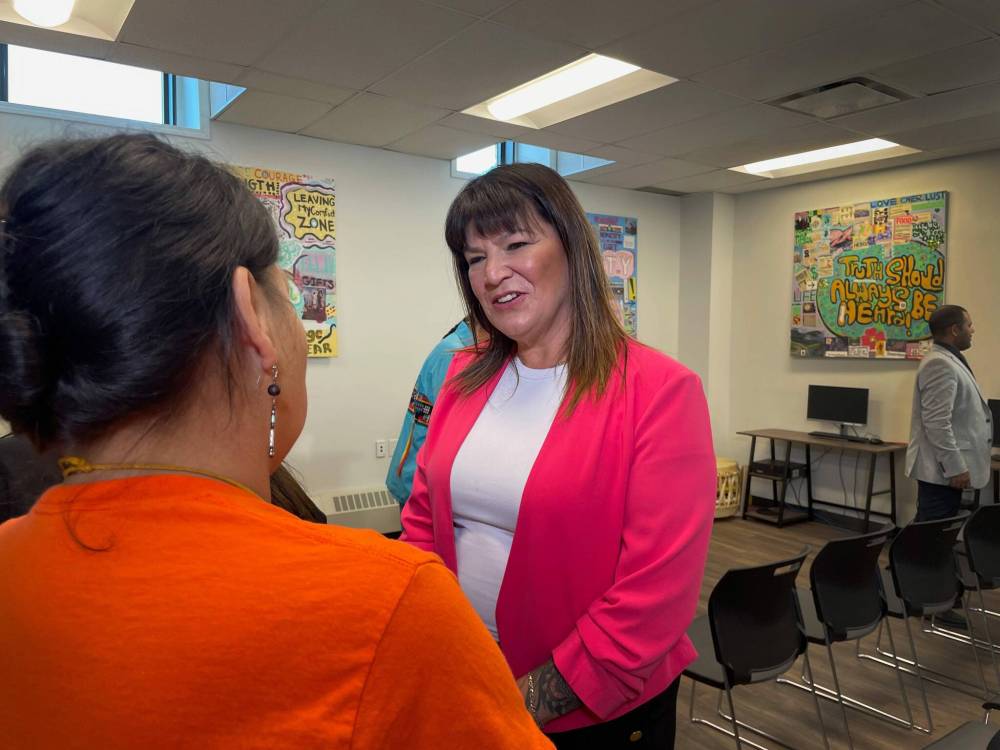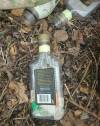Province gives organizations $4M for ‘culturally appropriate day programming’
Advertisement
Read this article for free:
or
Already have an account? Log in here »
To continue reading, please subscribe:
Monthly Digital Subscription
$0 for the first 4 weeks*
- Enjoy unlimited reading on winnipegfreepress.com
- Read the E-Edition, our digital replica newspaper
- Access News Break, our award-winning app
- Play interactive puzzles
*No charge for 4 weeks then price increases to the regular rate of $19.95 plus GST every four weeks. Offer available to new and qualified returning subscribers only. Cancel any time.
Monthly Digital Subscription
$4.99/week*
- Enjoy unlimited reading on winnipegfreepress.com
- Read the E-Edition, our digital replica newspaper
- Access News Break, our award-winning app
- Play interactive puzzles
*Billed as $19.95 plus GST every four weeks. Cancel any time.
To continue reading, please subscribe:
Add Free Press access to your Brandon Sun subscription for only an additional
$1 for the first 4 weeks*
*Your next subscription payment will increase by $1.00 and you will be charged $16.99 plus GST for four weeks. After four weeks, your payment will increase to $23.99 plus GST every four weeks.
Read unlimited articles for free today:
or
Already have an account? Log in here »
Indigenous-led day programming for people struggling with addictions, including virtual clinic visits in rural areas and counselling services for youth, will receive $4 million in government funding, the province announced Monday.
The funding will create 1,200 new spots to receive treatment, with 800 already having opened at five organizations across Manitoba and 400 at two organizations slated to open later this year.
The organizations that have received funding, including Life’s Journey and Ndinawemaaganag Endaawaad Inc. in Winnipeg and the Misipawistik Cree Nation Health Authority, will focus on incorporating Indigenous education and cultural practices into their services, said Housing, Addictions and Homelessness Minister Bernadette Smith.

“There has been day programming, but what’s different is this is going to be culturally appropriate day programming,” Smith said at a news conference announcing the funds Monday afternoon.
“Organizations will have elders leading, they’ll be bringing in folks from the community, and it’s really led by the community. We’ve listened to the community, and this is what they’ve asked for.”
The funding also includes an expansion of the Aboriginal Health and Wellness Centre’s virtual services set for later this year, which allows people to connect with Rapid Access to Addictions Medicine nurses online.
At Tina’s Safe Haven, a Selkirk Avenue drop-in space managed by Ndinawemaaganag, staff hold sharing circles twice a day and connect with youth and young adults one-on-one.
The program began in March, after receiving $718,000 from the province to expand on that work, which includes a “holistic” healing approach that centres ceremony and connection — or, for some youth, introduction — to Indigenous cultural practices, said Lionel Houston, a cultural adviser and elder with Ndinawemaaganag.
“It’s like a process,” he said. “We’re doing the mental thing first, and then we’re going to be doing the emotional thing, and then the spiritual thing, and then the physical thing.”
In the time since, children as young as 11 years old have taken part in the sharing circles, Houston said. Often, they’re seeking solace from turbulent home lives, Houston said.

“It’s our responsibility not to replace (their family), but to fill in so they’re never without,” he said. “So they’re getting the same love they would have normally gotten, the same lessons and stories, until their family is ready to do it.
Houston describes it as a “for life” program — available, ideally, whenever its members need support.
“Addiction is not the problem. It’s secondary,” he said. “We take care of the original problem.”
malak.abas@freepress.mb.ca

Malak Abas is a city reporter at the Free Press. Born and raised in Winnipeg’s North End, she led the campus paper at the University of Manitoba before joining the Free Press in 2020. Read more about Malak.
Every piece of reporting Malak produces is reviewed by an editing team before it is posted online or published in print — part of the Free Press‘s tradition, since 1872, of producing reliable independent journalism. Read more about Free Press’s history and mandate, and learn how our newsroom operates.
Our newsroom depends on a growing audience of readers to power our journalism. If you are not a paid reader, please consider becoming a subscriber.
Our newsroom depends on its audience of readers to power our journalism. Thank you for your support.




![BROOK JONES/FREE PRESS
]Lighthouse Mission, a local Winnipeg soup kitchen, is raising funds to continue building a space for 10 new detox beds. Lighthouse Mission Executive Director Peter McMullen is pictured in the third floor space that is being renovated into 10 new detox beds for women and a lobby area for them. McMullen was pictured at the Lighthouse Mission on Main Street in Winnipeg, Man., Friday, May 30, 2025.](https://www.winnipegfreepress.com/wp-content/uploads/sites/2/2025/06/3299731_web1_BJ-05302025LighthouseMissionPeterMcMullen01.jpg?w=100)

